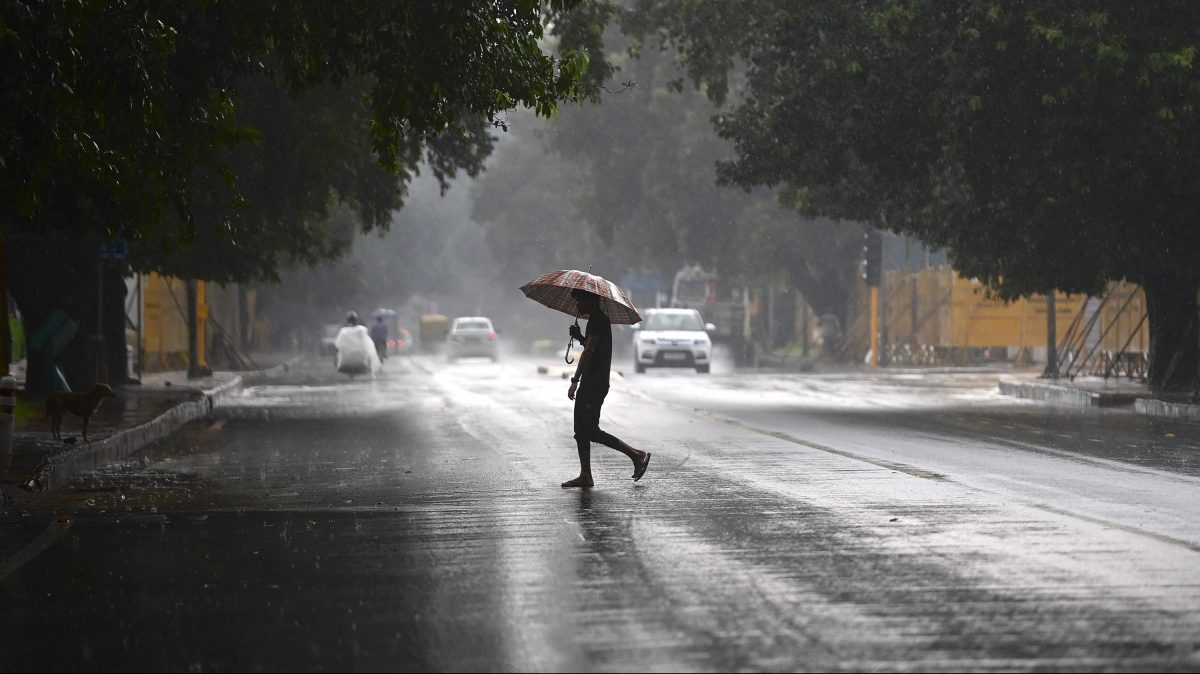How does the weather affect what we buy?
As the effects of climate change begin to be felt, some companies are looking for ways to manage the uncertainty of volatile weather events and the impact on their bottom line.
In 2020, the United States experienced a record 22 climate disasters with losses exceeding $ 1 billion each, according to the National Oceanic and Atmospheric Administration.
It’s important to take weather volatility into account, advises Bill Kirk, CEO of Weather Trends International in Bethlehem, PA. The company helps businesses take a proactive approach to weather events and make informed decisions about inventory, advertising and sales.
“I think the first step is just to make it through the next year or two and learn to adjust to those things,†he said.
Kirk spoke to Marketplace host Amy Scott about how weather affects consumer behavior. The following is an edited transcript of their conversation.
Bill Kirk: We call it the “1 degree power”. So, with each degree colder, there is an increase of about 5% in sales of coats. With each degree colder, there is an increase of about 7% in sales of mousetraps. Now what are we going to buy more because it’s so hot, you know, in September compared to last year? Allergy. It is an epic time of allergy and asthma. It’s usually the peak anyway, but the last year has been cold and rainy so it kind of suppressed our allergy-asthma. This year you’re probably up 11% to 33%. Insect repellents – insects are still active because it is hot, so they are up 55%. So it’s this change, it’s very important from year to year.
Amy Scott: And how do you help businesses prepare for these sometimes big and unexpected changes? I mean, are you saying you offer predictions for up to a year?
Church: Yes. I am a meteorologist who graduated from Rutgers. We have a whole team of meteorologists, but we are more statisticians and physicists, but the statistics and climate cycles are very stable, so they are a much better way to predict temperature, precipitation, snowfall. We do it per week, one year every year, 32 million spots on Earth, but then we correlate it to seasonal sales. Now, if you can do that, we can project those sales, and that’s what we do for our Fortune 500 clients. So that helps businesses with that inventory, doesn’t it? I heard an ad the other day about back-to-school hoodies and coats. Are you kidding me? It’s 80 degrees. You know, last year was good, this year is not good.
Scott: Yes, schools are closing earlier in Baltimore because they haven’t [air conditioning]. You mentioned a number of fairly important companies. What about small businesses that maybe don’t have the budget for, you know, weather analysis? Are there things they can do to be more proactive?
Church: They have to understand it, right? Here in Bethlehem, PA, with COVID, we’re putting all of these seats outside, outside of restaurants that are literally in the parking lot, or they’re across the street. So if it’s 90 degrees on a hot summer day out here – and it’s hot for us – you’re not sitting outside on the asphalt, you know, even if it’s seats at outside. You just don’t do that.
Scott: You know, for businesses that rely a lot on foot traffic, that foot traffic can really go away under extreme weather conditions, and I wonder how you help these businesses think about how to keep going when people aren’t. do not walk.
Church: A good example is that we have a Rita’s Italian Ice, don’t we? So, they are an outdoor place. You have to queue outside. So if it’s really raining, those Italian ice cream shops, their sales drop. But what they did once with us was offer an incentive price: buy one, get one free. Guess what? Now you have a lot of people going to stand under umbrellas and get free ice cream for the family, right? You convinced me to do something I’m not inclined to do, but you need to be proactive with this plan ahead of time.
Scott: In what other ways does the weather affect consumer behavior, not just what we buy, but also how we buy?
Church: Well, this is interesting. So in summer, if it’s a nice weekend, you’ll go to the beach, the lake, the park. You will enjoy the good weather outdoors. That’s what we do as humans, isn’t it? But what if it’s cold and rainy all weekend? You are stuck inside. What are you doing inside? You are probably on your computer, you are probably on TV, you are shopping. So generally we have found that the really stormy weather – cold, rainy, snowy, worse it is – overall web traffic and consumer traffic is higher. You are more likely to see an ad, you are more likely to shop if the weather is really bad, almost any time of the year.
Scott: As climate change continues to cause bigger and bigger disasters over the years, and people, you know, seem to finally accept that climate change is real, do you see companies investing more in this kind of technology? to plan ahead and to adapt?
Church: You know, even if it’s 1 degree higher in 100 years, okay, depending on the models, it can be more extreme, can be more volatile, like we’ve seen. You know last year [was] one of the coldest September in eight years. This year [was] one of the hottest. The changes can be huge, so you have to get creative to figure that out, and I think the first step is just to prepare well for the next year or two, you know, and learn to adapt to these things. .

